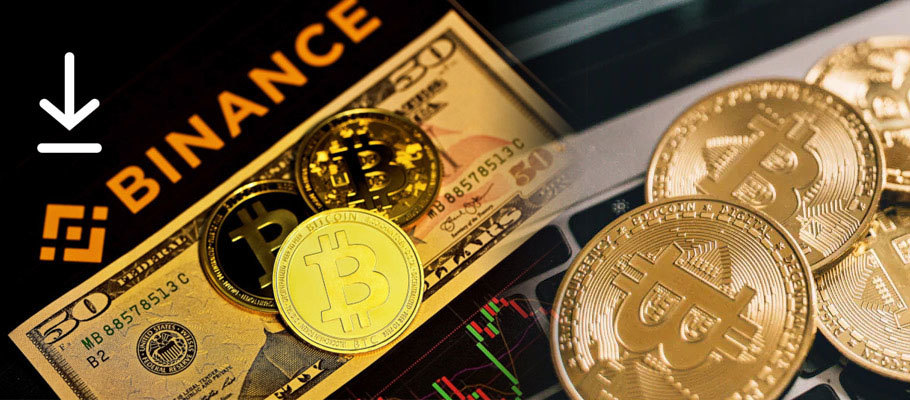
Published: May 10th, 2023
Moves afoot inside the world’s number one cryptocurrency exchange have led some traders to question whether or not it was liquidating huge amounts of Bitcoin.
Data from Coinglass showed that between Monday 8th May and Tuesday 9th May, Binance moved more than USD five billion in Bitcoin, or roughly 30 per cent its net BTC reserve balance.
Close to 183,000 BTC appeared to have left the exchange in a 24-hour period, sparking concerns by some observers about the reasons behind the ‘atypical’ movements.
The apparent Bitcoin outflows happened just after Binance placed a temporary pause BTC withdrawals. In a Twitter exchange, Binance said that no one should be concerned about the transfers.
Tweets from Binance’s official Twitter account said that the company was aware ‘some data are showing a large volume of outflows,’ However, the outflows actually represent ‘movements’ between the exchange’s hot and cold wallets. The shift was necessitated by BTC address adjustments, Binance added.
In a press announcement shortly after the Twitter thread, Binance said the BTC movements were not cause for worry, referencing comment from analytics firm CryptoQuant which said that Binance’s BTC moves were required thanks to newly-created change addresses owned by the exchange.
As the world’s number one marketplace for crypto assets, traders tend to keep an eye peeled for major transactions on the exchange. They can be read as signals about trader confidence in the company, or the reverse.
In December 2022, Binance saw billions-worth of crypto leave the exchange in one 24-hour period, prompting fears as to whether its reserves were secure. Founder and CEO Changpeng ‘CZ’ Zhao said at the time that the withdrawals were just ‘routine business’.
Six months before the December withdrawals, a Reuters investigation in June 2022 found that Binance had been used to launder more than USD 2.3 billion in illicit funds between 2017 and 2021.
Journalists and analysts at the news agency based their findings on court records and interviews with financial regulators. They also partnered with two blockchain analytics firms, Crystal Blockchain and Chainalysis, to track illicit funds moving through the exchange.
The report quotes a Binance spokesperson, who said the exchange is in the process of building ‘the most rigorous cyber forensics team in the industry,’ the spokesperson said, which will ‘strengthen our ability to uncover illegal activity on the exchange.’
In a prepared statement published on the company website, Binance said it had received ‘a flood of support’ from its ‘law enforcement partners’ across the globe since Reuters published its findings on Monday.
The company describes the article as a ‘woefully misinformed’ opinion piece that uses outdated information from 2019 and ‘relies heavily on anonymous sources to establish a false narrative.’
Reuters claims to have uncovered the links between a number of hacks and breaches involving several crypto trading platforms, with Binance playing a part in each one. These include the hack of Slovakian crypto exchange Eterbase, criminal activities on a darknet marketplace called Hydra, and the Lazarus hacking collective which operates out of North Korea.
Reuters estimated that the Hydra darknet marketplace had used Binance to facilitate payments for illegal drugs sales worth close to USD 780 million, an accusation the company called ‘inaccurate and overblown.’
In April 2022, the US Justice Department announced it had been working with German police to seize Hydra's European servers. The Justice Department said Hydra was the source of 80 per cent of all darknet crypto transactions, pulling in more than USD 5 billion since 2016.
Hydra user posts seen by Reuters seemed to confirm that Binance was the site’s preferred payments platform due to its anonymity when creating an account.
In September 2020, Reuters says hackers from North Korea’s Lazarus group created a number of Binance user accounts and used them to launder USD 5.3 million in funds stolen from Slovakian cryptocurrency exchange Eterbase.
Because it asks only for minimal information when a new account is being created, Binance ‘doesn't have a clue about who is actually moving money through their exchange,’ Eterbase co-founder Robert Auxt told the news agency.
After it was hacked, Eterbase tried to work with Binance to get the stolen funds back, with Binance CEO Changpeng Zhao tweetng that the exchange would ‘do what it could to help’. However, emails shared with Reuters seem show that Binance dragged its feet on information and account data sharing unless law enforcement made a formal request.
The loss forced Eterbase to shut down its exchange and file for bankruptcy. The company lodged a criminal complaint with Slovakian authorities, who sent two requests to Binance for information. According to Reuters, the exchange supplied the details for 20 accounts with anonymous usernames.
Lazarus comes up again and again in the Reuters report. According to US law enforcement officials, the group is a state sponsored North Korean hacking unit that steals money to help fund North Korea's nuclear weapons program.
Figures from Chainalysis suggest that the group had stolen more than USD 1.75 billion in cryptocurrencies in the last two years alone.
Back in December 2021, Binance felt compelled to walk back an application for an operating license from Singapore’s financial service watchdog. The news was included in a wider announcement that the global crypto exchange plans to “refocus” strategically in Singapore and take advantage of the city state’s status as a blockchain innovation hub.
A company announcement said that the exchange’s Singaporean entity, Binance Asia Services, would lead the firm’s mission to develop a global blockchain trading ecosystem.
Richard Teng, CEO of Binance Singapore, told The Straits Times that Singapore is ‘already a humming fintech hub’ and that Binance will make further investments in the Southeast Asian region.
‘Singapore will become one of our lead R&D centres.’ As for current Singaporean traders on the platform, Teng said the company ‘always puts users first.’